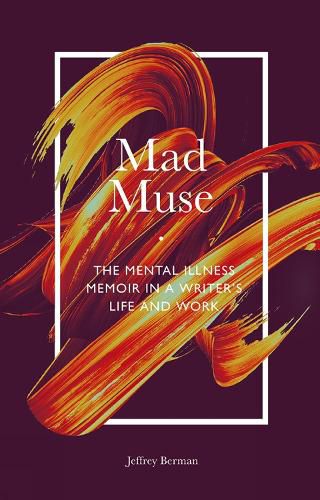Readings Newsletter
Become a Readings Member to make your shopping experience even easier.
Sign in or sign up for free!
You’re not far away from qualifying for FREE standard shipping within Australia
You’ve qualified for FREE standard shipping within Australia
The cart is loading…






Mental illness can often be the driving force behind creativity. This relationship is never more apparent than in the memoirs of writers who have lived, worked and created with a mental illness. Mad Muse examines and unpicks this fascinating relationship, demonstrating that mental illness is often intergenerational while the story of mental illness is intertextual.
The study begins with William Styron’s iconic memoir Darkness Visible, moving through a succession of mental illness memoirs from some of the most important authors in the genre, including Kate Millett, Kay Redfield Jamison, Linda Sexton, Lauren Slater, Andrew Solomon and Elyn Saks.
From memoirs that blur the boundaries between historical truth and narrative truth to a first-person account of schizophrenia, Berman discusses the challenges of reading books which inspire hope and courage in many readers but may also sometimes have unintended consequences. In so doing, it illuminates the complex, co-existing relationship between the arts and mental health and represents an invaluable contribution to the study of health humanities.
$9.00 standard shipping within Australia
FREE standard shipping within Australia for orders over $100.00
Express & International shipping calculated at checkout
Mental illness can often be the driving force behind creativity. This relationship is never more apparent than in the memoirs of writers who have lived, worked and created with a mental illness. Mad Muse examines and unpicks this fascinating relationship, demonstrating that mental illness is often intergenerational while the story of mental illness is intertextual.
The study begins with William Styron’s iconic memoir Darkness Visible, moving through a succession of mental illness memoirs from some of the most important authors in the genre, including Kate Millett, Kay Redfield Jamison, Linda Sexton, Lauren Slater, Andrew Solomon and Elyn Saks.
From memoirs that blur the boundaries between historical truth and narrative truth to a first-person account of schizophrenia, Berman discusses the challenges of reading books which inspire hope and courage in many readers but may also sometimes have unintended consequences. In so doing, it illuminates the complex, co-existing relationship between the arts and mental health and represents an invaluable contribution to the study of health humanities.